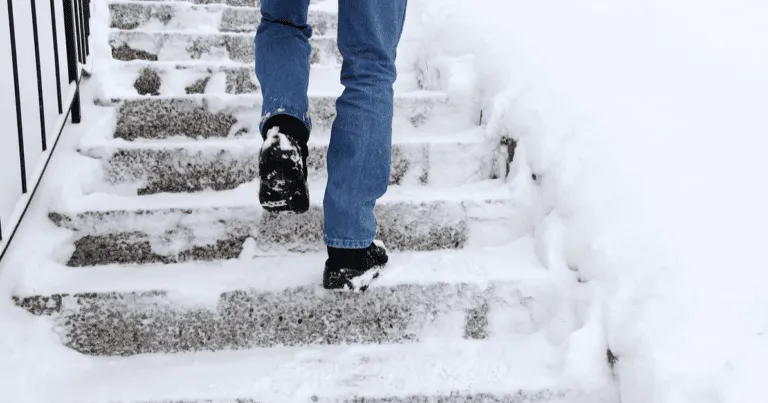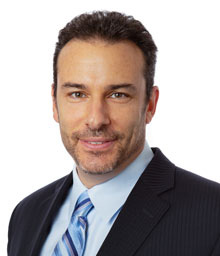- Home
- Our Firm
- Practice Areas
- Bicycle Accidents
- New York City Car Accident Lawyer
- New York City Car Accident Checklist
- New York City Car Accident Insurance Lawyer
- New York City Common Car Accident Injuries
- New York City Common Causes of Car Accidents
- Aggressive Driving
- New York City Distracted Driving Lawyer
- New York City Fatigued Driver Lawyer
- Drunk Driving
- New York City Reckless Driving Accident Lawyer
- New York City Road Construction Accident Lawyer
- New York City Texting While Driving Lawyer
- Traffic Signal Rules
- Vehicle Defects
- New York City Weather and Road Condition Lawyer
- New York Car Accident Fault Laws
- New York City Types of Car Accidents
- Hit-and-Run Accident
- Fatal Car Accident
- Maximum Compensation for Car Accident
- New York City Multi-Vehicle Accident Lawyer
- New York City Rear-End Accident Lawyer
- Speeding Accident
- Construction Accidents
- Amputations & Limb Loss
- Burns and Construction Accidents
- Construction Wrongful Death
- Crane and Vehicular Accidents
- Construction Negligence
- Construction Slip and Fall Accidents
- Construction Accident Legal Guide
- Construction Site Safety Code
- Cranes & Derricks Safety Standards
- Excavation Safety Standards
- Fall Protection Standards
- General Construction Safety and Health Standards
- High-Risk Construction Oversight
- New York Labor Laws
- New Protocols for Existing and New Concrete-Embedded Fall Arresting Systems
- Personal Protective and Life Saving Equipment Standards
- Scaffold & Sidewalk Shed Safety
- Scaffold Safety Standards
- Steel Construction Safety Standards
- Construction Zone Accidents
- Dangerous Construction Trades & Professions
- Electrocution Accidents
- Eye Injury
- Failure to Provide Safety Equipment
- Falling Objects Injuries
- Falls from Elevated Work Surfaces
- Fracture Injury
- Forklift Accidents
- Knee & Ankle Injuries
- Knee & Shoulder Injury
- Heavy Equipment Accidents
- Spinal Cord Injury
- Scaffolding Accidents
- Paralysis Injury
- PTSD and Construction Accidents
- Toxic Exposure Injury
- Trench Collapse Accidents
- Traumatic Brain Injury
- Undocumented Construction Worker Injuries
- Workplace Construction FAQ’s
- Dog Bite
- E-Bike Accident
- Lead Poisoning
- Motorcycle Accidents
- Onewheel Accident
- Pedestrian Accidents
- Personal Injury
- New York City Premises Liability Lawyer
- Rideshare Accident
- Slip and Fall
- Airport Falls
- Cluttered Aisle Falls
- Cracked or Damaged Floor Tiles
- Common Injuries
- Elevator and Escalator Falls
- Exposed Cords or Wires
- Grocery Store Falls
- Aldi Grocery Store Slip And Fall
- Associated Supermarkets
- Big Deal Supermarket
- CTown Supermarkets
- Compare Foods Supermarket
- Good N’ Natural Organic Market
- Fairway Market
- Fine Fare Supermarkets
- Food Bazaar Supermarket
- Gristedes Supermarkets
- Key Food Stores
- Met Foodmarkets
- Pioneer Supermarkets
- Shop Fair Supermarket
- Shoprite Of Gateway Center
- Stop & Shop
- Superfresh Store
- Trader Joe’s
- Wegmans
- Western Beef Supermarket
- Whole Foods
- Ice Slip and Falls
- Inadequate Lighting Accidents
- Inadequate or Missing Warning Signs Slip and Fall
- Leaves or Debris on Walkways
- Loose or Missing Handrails
- Loose and Uneven Flooring
- Missing Floor Mats Or Runners
- NY Property Owner Responsibility
- Parking Lot & Sidewalk Falls
- Potholes Slip and Fall
- Public Park Falls
- Public Transportation Falls
- Sudden Changes in Floor Elevation
- Snowstorm Falls
- Stairway Falls
- Slip and Fall Legal Guide
- Slip And Fall Settlements
- Slip And Fall FAQs
- Slippery Floors Accidents
- Statute of Limitations
- Transitions from One Type of Floor to Another
- Torn Carpet Slip and Falls
- New York City Pregnant Slip and Fall Lawyer
- While Visiting New York
- Why Are Slip and Fall Cases So Hard to Win?
- Workplace Falls
- Trip and Fall
- Truck Accidents
- Traumatic Brain Injury
- Wrongful Death
- See All Legal Services
- Cities We Serve
- Client Testimonials
- Contact Us
- Blog
- FREE CASE EVALUATION (212) 279-2000

New Yorkers are all too familiar with winter weather. While you might be prepared for the snowflakes, are you ready for a winter-related injury? If not, the attorneys at David Resnick & Associates, P.C. are here to help. This page will discuss how prevalent winter-related injuries are, certain injuries that are common in the winter, and how you can keep yourself safe this season. If you are hurt in a winter-weather accident, contact our compassionate New York personal injury attorneys for immediate support and guidance.
Current Statistics
You might be surprised to learn just how common winter weather injuries are. Here are some current statistics to be aware of:
- According to the Environmental Protection Agency (EPA), death rates in winter are consistently between 8 and 12 percent higher than in non-winter months.
- According to the National Safety Council (NSC), the historic cold wave and winter storm in February 2021 caused 262 deaths, making it the most deadly winter-related event in the last five years.
- The American Academy of Orthopedic Surgeons reports that 200,000 people were treated in one recent year for winter sports-related injuries, most commonly from skiing and snowboarding.
- According to the Bureau of Labor Statistics (BLS), employers reported 20,460 workplace injuries related to ice, sleet, and snow in one recent year. Fourteen percent of these injuries occurred in the state of New York.
- According to the U.S. Department of Transportation (USDOT), over 1,300 people are killed and more than 116,800 are injured in vehicle crashes on icy, slushy, or snowy roads annually.
- According to the Centers for Disease Control and Prevention (CDC), more deaths are attributed to cold weather than hot weather in the U.S.
- According to the CDC, approximately 1 million Americans are injured annually from falling on ice and snow. About 17,000 of these falls lead to death.
Common Injuries
Common injuries suffered due to winter-related accidents, such as slips and falls, include the following:
- Broken bones
- Dislocations
- Soft tissue strains and sprains
- Facial injuries
- Broken or chipped teeth
- Concussions
- Traumatic brain injuries
- Spinal cord injuries
These injuries can be very expensive to treat, so talking to an experienced slip and fall lawyer is in your best interest. You can learn about your options for recovering compensation to pay for your medical expenses and other accident-related costs.
Preventing Injuries
To prevent weather-related injuries this winter, the personal injury lawyers at David Resnick & Associates, P.C., recommend you take the following precautions:
- Wear appropriate footwear that provides stability and traction on slick surfaces.
- Walk slowly and with care.
- Take small steps on slippery surfaces.
- Use handrails when available.
- Keep your hands free from objects and out of your pockets so you can use your hands for support if you start to fall.
- Be aware of your surroundings.
- Look out for vehicles before crossing the road, or when sledding. Cars may need more distance to stop on slick roads.
- Salt the sidewalks around your home.
- Avoid unnecessary journeys in extreme weather conditions.
What to Do After an Injury
If you suffer an injury this winter for which another person is to blame, you may be able to recover compensation from them. Regardless of the weather, property owners have a duty to provide a safe environment to guests. New York also has specific rules related to snow and ice removal they must follow. Motorists are responsible for taking precautions when driving in inclement conditions. If you think someone else is responsible for your winter-related injury, contact the New York personal injury attorneys at David Resnick & Associates, P.C. for a free consultation. We can discuss your legal options and guide you through the process of recovering compensation.
What Our Clients Say
RECENT NYC SLIP & FALL LAWSUIT VERDICTS
$2 MILLION
Fractured Leg
$1.9 MILLION
Car Accident Settlement
$1.75 MILLION
Slip And Fall Settlement
LATEST BLOG POSTS
November 28, 2024
Trip and Fall Accidents on NYC Construction Sites: Who Can Be Held Liable?
Construction sites are among the most hazardous environments in New York City, often riddled with uneven surfaces, debris, and other…
November 21, 2024
Proving Negligence in New York Slip and Fall Injury Claims: What You Need to Know
Slip and fall accidents can happen instantly but leave lasting physical, emotional, and financial impacts. For victims in New York, successfully…
November 14, 2024
How Long Does It Take to Settle a Slip and Fall Case in NYC?
Slip and fall accidents can result in serious injuries, costly medical bills, and unexpected disruptions to your life. If you’ve been…
Get In Touch
Get Your Free Consultation✖






